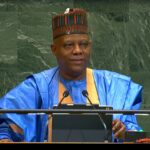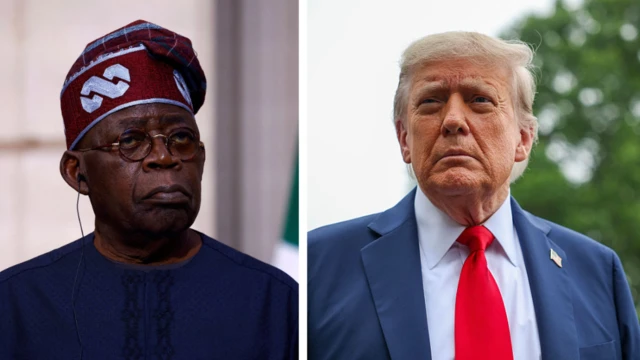Every September the world’s leaders descend on New York for the annual ritual of the United Nations General Assembly. The city groans under motorcades, hotels inflate their rates, and the marble hall fills with solemn speeches about peace, justice, and the dignity of man. Delegates clap politely, translators work overtime, and television cameras beam the spectacle worldwide. It looks, for one week, like a parliament of humanity, a cathedral of democracy. But the illusion collapses the moment you walk a few blocks to the smaller chamber where the real business is done. That chamber is the Security Council, and its very structure is the loudest proof of Western hypocrisy.
These same powers that lecture the globe about “one man, one vote” designed a system where the voice of nearly 200 nations can be silenced by a single hand raised in veto. If the entire world agrees on a resolution, but one of the permanent five disagrees, the resolution dies instantly. No appeal, no reconsideration, no democracy. They call this order, but in any school classroom it would be called cheating. They tell us democracy means the majority carries the day, yet in global politics the minority of the powerful carry the veto. This is not democracy; it is feudalism in modern dress: lords with absolute privileges and commoners with symbolic voices. And still, Washington, London, and Paris drape themselves in moral robes, insisting they are guardians of freedom. What they actually guard is their own privilege to decide who eats and who is eaten.
This hypocrisy matters because the UN was supposed to be the restaurant where all nations dined together. Instead, it has become a hall where five permanent members sit with carving knives, while the rest of the world gets to read the menu and clap. Palestine’s pleas vanish in a veto. Wars are washed white by procedure. Aggression is excused with the raising of a single hand. When the West tells us it defends democracy, remember this: it defends a structure where one vote from Washington outweighs 150 from the rest of the world. That is not majority rule. That is the dictatorship of the few disguised as procedure.
Now, place this in the larger context of international politics. The United States has enjoyed decades at the head of the global table. Emerging from (Western) World War II more powerful than every rival, it acted as chef, waiter, and diner all at once. NATO, the IMF, the World Bank; these were its cutlery. After the Cold War, it mistook itself for the restaurant owner. The 1990s were the “unipolar moment,” which in plain English meant a feeding frenzy. Washington bombed Yugoslavia, invaded Iraq, expanded NATO, sanctioned whoever it pleased, and called it all democracy. It was not democracy. It was democrazy.
But history has a way of sending the check. The unipolar banquet is over. China has walked in demanding not a side salad but a full seat. Russia, battered but unbowed, smashed plates to remind everyone it refuses to be sliced into pieces. Iran, mistaken by the gangsters as a piece of meat the West has tried to roast for decades, refuses to go down the throat. Multipolarity is back, and the knives are clashing again.
Nowhere is this clearer than the Middle East. Israel, subsidised by the US taxpayers, thought it could swallow Palestine whole and still pose as a “vibrant democracy.” It demolished homes, blockaded Gaza, expanded settlements, and insisted this was “self-defence.” For decades, the world swallowed the story. But Gaza has proven indigestible. Palestinians will not stop biting back. Lebanon refuses to be garnished. Syria still smoulders. And looming over all is Iran; the dish that will not be cooked, the state that refuses to be eaten.
Iran matters because it punctures the myth that “weaker” nations must accept their fate as menu items. For forty years the U.S. and Israel have tried every recipe: sanctions to starve it, assassinations to tenderise it, propaganda to marinate it, cyberattacks to poison it. Yet Iran not only survives, it insists on grabbing a plate of its own. It support allies, builds weapons, and refuses subordination. That is the definition of being on the table instead of on the menu.
What truly unsettles the West is not necessarily the nuclear programme or its missiles but Iranian symbolism. Every centrifuge replaced, every sanction endured, every refusal to bow sends a signal: you don’t have to be eaten. Caracas notices. Pretoria notices. Jakarta notices. The pawns of the global system begin to realise they can be players. And that is more dangerous to empire than any warhead.
Meanwhile, the U.S. clings to its cookbook: the “rules-based order.” But the recipes are written in disappearing ink. Saddam followed the rules and was hanged. Libya trusted Western promises and was flambéed. Ukraine was assured eternal support, only to find itself half-cooked in a proxy war. Taiwan listens nervously, wondering whether it will be boiled or fried. The message is brutal: if you don’t bring your own knife, you will be the dish.
China knows this, which is why it builds islands, hoards minerals, and buys ports. Russia knows this, which is why it invaded Ukraine rather than be encircled by NATO. Smaller states know it too, though many learn too late. In this restaurant, morality is always dessert. It is sweet to talk about but the first course skipped when appetites are fierce.
The irony is unavoidable. The US chants free trade while monopolising the menu. The illegal state of Israel insists it is the eternal victim while wiping grease from its fingers. Europe proclaims human rights while drowning refugees in the Mediterranean. China whispers “win-win” while piling rare earths and ports onto its plate. Russia declares “security” while chewing on its Zalensky. Everyone lies about their appetite but strip away the garnish and the rule is universal: eat or be eaten.
Palestine has been on the menu for three generations. Yemen for a decade. Africa for centuries. Latin America has been the dessert trolley; rolled out when useful, ignored when not. Even Europe, once co-chef, now discovers what it means to be a side dish in America’s showdown with Russia and China.
This is why Iran’s resilience resonates worldwide. It shows the menu is not destiny. It shows sanctions are not always fatal. It shows that even when five veto powers tilt the board, a determined nation can still refuse. That lesson reverberates in the Global South more than all the empty UN speeches combined.
But multipolarity is no picnic. A crowded table means more knives, louder arguments, and greater risk of blood. The pawns of humanity; the workers, the farmers, the refugees; will continue to be carved up. Yet this is the nature of the system. You can’t turn sharks into vegans with declarations. You can’t make predators polite by quoting charters. You can only make sure you’re not bleeding when the plates are cleared.
So when you watch the UN General Assembly, remember this: the real business is not in the speeches but in the dining hall of power, where five veto-holding lords decide who eats and who is eaten. The General Assembly is the stage play; the Security Council is the kitchen. And the kitchen is run not on democracy but on appetite.
The lesson is harsh but liberating. Don’t trust parchment or pity. Build strength. Guard sovereignty. Write your own recipes. To have peace, prepare for war. To have freedom never surrender to a bully, stand up against him instead. Otherwise, you will wake up garnished with parsley, asking how you ended up roasted.
And when Western leaders assure you that they are defending democracy, remember: they preside over a system where one vote can cancel two hundred. That is not democracy. That is hypocrisy carved into the architecture of the world itself. In diplomacy, as in dining, the only real question is this: if you are not seated at the table, then you are on the menu? If you are not with a knife on the table then, you are the dish.














Leave a comment